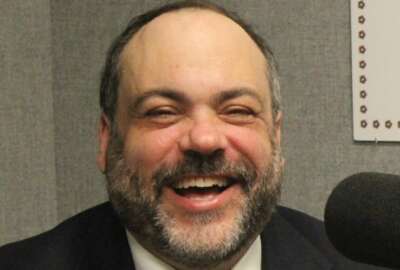For federal employee justice, some continuity in leadership
Sometimes things work sort of normally in the government when it comes to federal workplace justice. The Senate last week confirmed the new Special Counsel.
Sometimes things work sort of normally in the government when it comes to federal workplace justice. For instance, the Senate last week confirmed the new Special Counsel for the Office of Special Counsel, and yesterday he was sworn in. With a name like Hampton Yeats Dellinger, he may offer a literary flair to OSC decisions.
Until his nomination to OSC, Dellinger was assistant attorney general for the Office of Legal Policy. He’s no non-partisan, but presumably he knows the four specific laws — including the Hatch Act —that concern the OSC. Dellinger is no non-partisan, though, as evidenced by some tweets unearthed by Republican Senator Chuck Grassley (Iowa). His answers to Grassley’s questions are worth reading.
Dellinger succeeds Henry Kerner, who has been a sort of jolly warrior on behalf of retaliated-against whistleblowers and other federal employees harmed by prohibited personnel practices. OCS under Kerner, and his predecessor Carolyn Lerner (now a federal judge), maintained a tough stance on Hatch Act violations. That is, federal employees politicking at work. Dellinger and OSC staff will have to remain both tough and non-partisan in the presidential election now drearily unfolding.
I know we’re not choosing between Adlai Stevenson II and Dwight Eisenhower, but still, election passions never improved any workplace other than campaign headquarters.
The Biden administration nominated Kerner to a seat on the Merit Systems Protection Board. I feel the Senate should confirm him. After a debate cloture vote, the Senate voted in favor of Cathy Harris continuing as MSPB chair, without “acting” on her title. That will maintain the quorum, two of three members. The two members can keep chipping away at a backlog of appeals cases that built up during the MSPB’s five years without a quorum.
When a quorum came back in 2022, it faced, or “inherited” in the board’s words, a backlog of 3,793 cases, some of them going back years. The latest report on case processing shows they’ve cleared 2,560 of them, or 61%. One of my regular correspondents who follows this process in detail, estimated that at the February pace of 264 cases, the board would wipe out the backlog in October of this year.
The average citizen has likely never heard of the Office of Special Counsel or the Merit Systems Protection Board. The gigantic machinery of the federal bureaucracy is difficult enough for people in it, or who follow it closely, to keep up with. Obscure as these two offices might seem, to federal employees they form a sort of supreme court against capricious or worse supervisors. Like all courts, they require effort, time and often expense to access and gain from. Still, the federal workplace and federal employees would be worse off without them.
Nearly Useless Factoid
The Hatch Act was named after Senator Carl A. Hatch of New Mexico, who introduced the bill in 1939.
Source: interestingfacts.org
Copyright © 2024 Federal News Network. All rights reserved. This website is not intended for users located within the European Economic Area.
Tom Temin is host of the Federal Drive and has been providing insight on federal technology and management issues for more than 30 years.
Follow @tteminWFED






